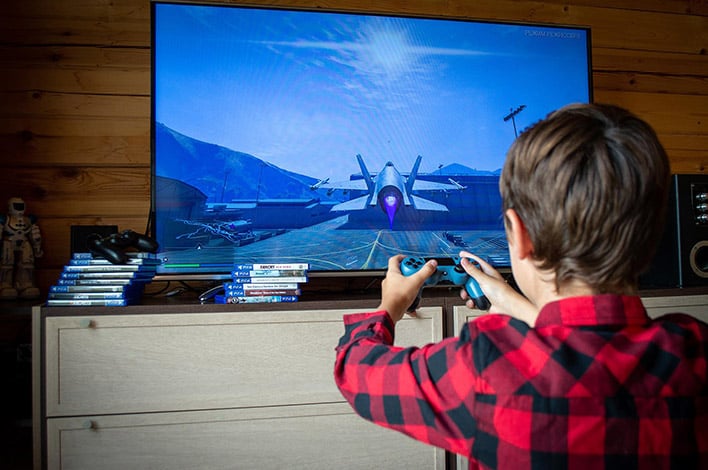Study Finds Playing Video Games Makes Children Smarter And Kids Everywhere Rejoice

We have all heard this argument before—video games are bad for children. Talking heads love to detail all of the supposedly horrible disadvantages created by playing video games. However, there is also evidence that many of these arguments are based on wobbly findings. Furthermore, a recent study concluded that video games may actually have a positive impact on a child’s intelligence.
The researchers studied 9,855 children in the United States between the ages of 9 and 10 years old. The study accounted for children's genetics, socio-economic backgrounds, and even potential differences between siblings or different genders. The children reported spending an average of 2.5 hours watching television, an hour playing video games, and half an hour socializing via the internet each day. The researchers were then able to access the data of over 5,000 of the original participants two years later. They determined that those who played more video games experienced jump of 2.5 IQ points above the average rise. Watching TV or other videos only led to a 1.8 IQ points increase and socializing had little overall impact on the their intelligence.
The researchers measured “intelligence” through five different “tasks” that participants were asked to perform both at the beginning and the end of the study. The Toolbox Picture Vocabulary Task “measured language and vocabulary comprehension,” Toolbox Flanker Task “[assessed] participants’ inhibition of surrounding stimuli distracting from the target,' Toolbox Oral Reading Recognition Task “[measured] language decoding and reading,” Rey Auditory Verbal Learning Task “[measured] auditory learning and memory recall,” and the Little Man Task “was used to test visual-spatial processing, including mental rotation.”

The researchers note that there are various limitations to their study on gaming. For example, the study did not measure the impact of “screen time” on mental health, sleep, physical activity, or school performance. It also did not differentiate between various kinds of games, such as PC versus console, versus mobile devices. However, one of the most significant findings in the study is that cognitive abilities are malleable and deeply influenced by one’s environment. The researchers plan on studying how other environmental factors may influence intelligence. Few are recommending unlimited screen time, but parents do not need to fear that video games are detrimental to their children’s intelligence.

